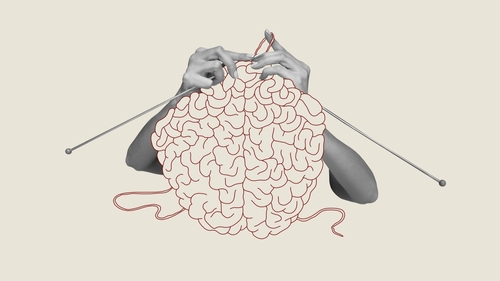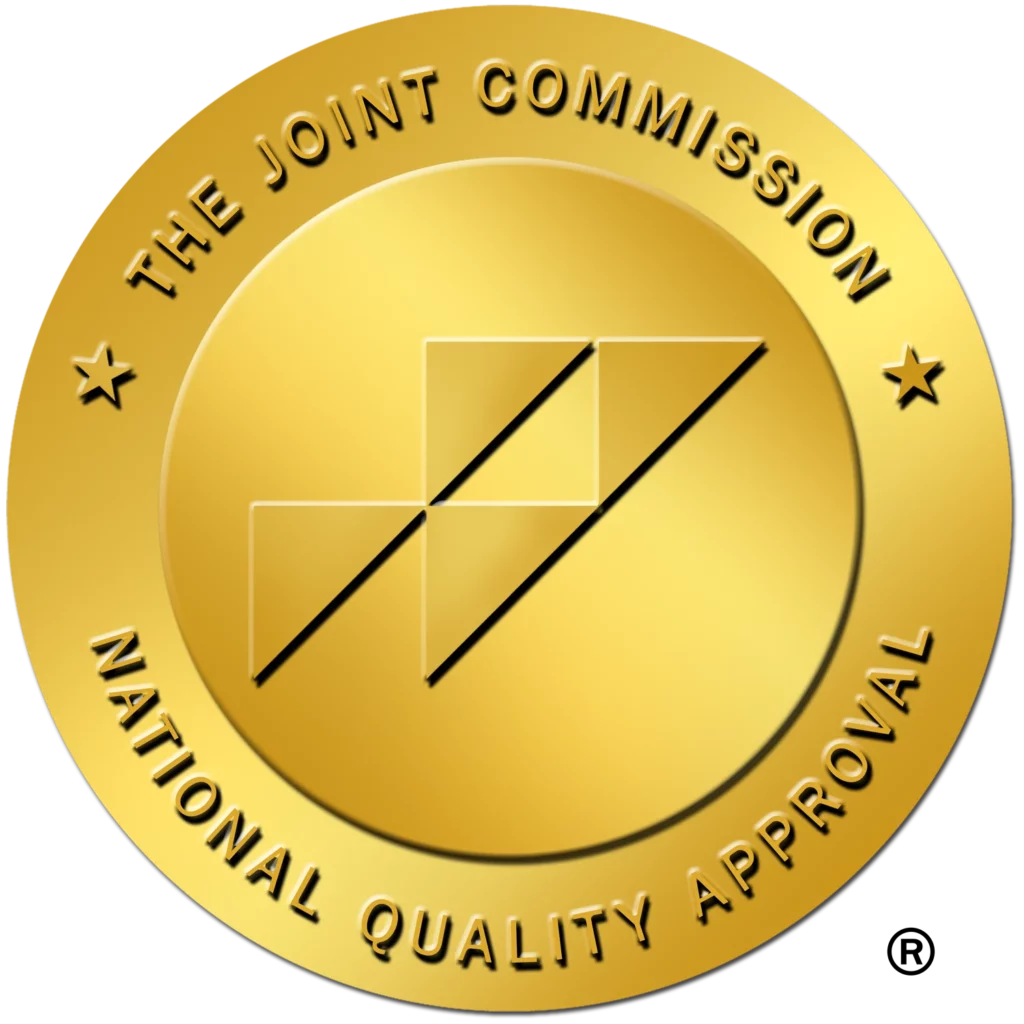10 Signs of a Functioning Alcoholic
This entry was posted in Alcohol Abuse and tagged 10 signs of a functioning alcoholic, functioning alcoholic, high functioning alcoholic on August 14, 2023 by Justin Baksh, MS, LMHC, MCAP, Chief Clinical Officer.

A functioning alcoholic, also known as a high-functioning alcoholic, is an individual who relies on alcohol but manages to sustain the appearance of a typical life. This person often holds a steady job, supports a family, and engages in social activities, all while excessively consuming alcohol.
Although it is not an official diagnosis, functional alcoholism is a phenomenon that needs more awareness. It can be important to know that some alcoholics can function so well that they go undetected for years, even decades. Why? Because their hidden addiction can lead to devastating accidents as well as long-term physical and mental health consequences for the individual and their loved ones. By identifying the red flags early on, however, appropriate interventions can be initiated to help the person seek treatment and support for their alcoholism.
10 Key Signs of a Functioning Alcoholic
SIGN 1 – Consistent Alcohol Consumption
Consistent alcohol consumption is a major sign of progressive alcoholism, characterized by:
- Drinking Daily or Almost Daily – A person with consistent alcohol consumption will often drink on a daily basis, or nearly so. This pattern of frequent drinking can indicate a growing reliance on alcohol to function or cope with daily life.
- High Quantity of Alcohol Consumed – Another aspect of consistent alcohol consumption is the amount of alcohol being consumed regularly. An individual who consistently consumes large quantities of alcohol is at a higher risk for developing dependence or addiction, as their tolerance to alcohol increases over time. This may result in the need for more alcohol to achieve the desired effects, which can lead to dangerous and irresponsible consumption patterns.
SIGN 2 – Drinking in Inappropriate Situations
Functioning Alcoholics prioritize drinking over social expectations and even their own safety. They can often be found:
- Drinking at Work or During Work Hours – Drinking in the workplace or during working hours can be a sign of alcohol abuse. Consuming alcohol during work hours not only impacts an individual’s productivity and decision-making abilities, but it can also introduce risks for both the person under the influence and their coworkers. Furthermore, it can damage professional relationships and potentially lead to severe consequences such as job termination or legal troubles.
- Driving Under the Influence – Driving under the influence of alcohol is another inappropriate situation that indicates alcohol abuse. Alcohol impairs cognitive function, reduces motor skills, and slows down reaction time, significantly increasing the risk of road accidents. Engaging in this dangerous behaviour shows a disregard for personal safety and that of others on the road. Furthermore, operating a vehicle while under the influence may lead to legal repercussions, such as monetary penalties, suspension of driving privileges, and potentially even incarceration.
SIGN 3 – Maintaining Job Performance Despite Alcohol Use
The irony is that, even though functioning alcoholics can often be intoxicated on the job, they still manage to fulfil their duties satisfactorily enough to stay employed. In fact, those around them may not even know they are under the influence. They are typically:
- High functioning at work – Despite facing the challenges of alcohol use, some individuals can maintain a high level of functioning at their jobs. They are often able to perform tasks efficiently, meet deadlines, and achieve their goals despite the impact alcohol may have on their overall health and well-being. However, it is important to note that this ability to excel at work can mask the severity of their alcohol-related issues.
- Able to Maintain Positive Professional Relationships – Maintaining positive professional relationships is another sign that an individual might be managing their alcohol use while excelling at work. They may continue to network effectively, collaborate well with coworkers, and maintain a strong rapport with clients or customers. This ability to engage in positive interactions with others in a professional setting is indicative of the person’s ability to manage the effects of alcohol and compartmentalize their addiction from their work life.
SIGN 4 – Impact on Personal Relationships
While functioning alcoholics can maintain appearances at work, but usually their alcoholism wreaks havoc on their relationships at home. They usually experience:
- Strained relationships with family and friends – One of the most noticeable consequences of alcohol abuse is the strain it puts on personal relationships. Consumed by their addiction, an individual may start prioritizing alcohol over their loved ones. This can result in frequent arguments, distrust, and resentment from both sides. Additionally, the emotional instability that comes with excessive alcohol consumption can make it difficult for the person struggling with addiction to maintain healthy relationships, further driving a wedge between them and their family and friends.
- Isolation due to alcohol consumption – As alcohol begins to take center stage in someone’s life, they may start isolating themselves in order to drink without interference or judgment from others. The lack of social activities and support networks can intensify feelings of loneliness, and lead to depression, and anxiety. The individual may become more focused on satisfying their cravings for alcohol than seeking help or engaging in meaningful interpersonal interactions. As their support systems weaken, they might find themselves trapped in a cycle of isolation and alcohol dependence that only further damages their personal relationships.
SIGN 5 – Expertise in hiding alcohol use
Functioning alcoholics and alcoholics alike learn the ways of deception quickly. They can frequently be found:
- Concealing alcohol consumption from others – One of the clear signs of alcohol abuse is the person’s growing proficiency in hiding their alcohol consumption from family, friends, and colleagues. This can involve keeping secret stashes of alcoholic beverages in unlikely places, such as at work, in the car, or even inside personal belongings. They may also go to great lengths to mask the smell of alcohol on their breath or clothing using perfumes, mints, or changing clothes frequently.
- Denying the extent of the problem – Another common trait among those struggling with alcohol addiction is their tendency to deny or downplay the severity of their situation. They may provide various justifications for their excessive drinking, such as claiming it helps them deal with stress or that they are simply more comfortable with a higher level of alcohol consumption than others. These rationalizations often serve to protect them from any scrutiny or criticism about their drinking habits and allow them to continue abusing alcohol without facing any potential consequences.
SIGN 6 – Memory lapses or blackouts
Memory lapses or blackouts are a concerning sign of excessive alcohol consumption. These incidents can manifest in two particular ways:
- Inability to recall events during intoxicated periods – When someone consumes large amounts of alcohol, it can significantly impair cognitive function and the ability to form new memories. This results in an inability to recall events that took place while the person was intoxicated. These lost memories, commonly referred to as “blackouts,” are moments when the individual may have been conscious but was unable to properly store or recall their experiences.
- Regular occurrences of memory lapses – If memory lapses become a frequent occurrence during or following alcohol consumption, it may be indicative of a deeper issue related to one’s drinking habits. Regular memory lapses not only imply excessive alcohol intake but may also lead to potential consequences in one’s personal and professional life. Continuous memory lapses could signify the need for evaluation and possible intervention in order to prevent further negative impacts on the individual’s life and well-being.
SIGN 7 – Using alcohol as a coping mechanism
Life can be hard. For a functioning alcoholic, the drinking is a way to cope. You will find them:
- Relying on alcohol to deal with stress or emotions – Using alcohol as a coping mechanism is a common, yet unhealthy, method many people turn to when dealing with stress or overwhelming emotions. This behaviour often stems from the temporary relief or euphoria that alcohol provides, making it an enticing option for those who are struggling. As a person relies more and more on alcohol to cope with their emotions, they may establish a harmful pattern and inadvertently sabotage their ability to develop healthier coping strategies.
- Experiencing impacts on their mental health – Alcohol, despite providing temporary relief, can have a negative impact on an individual’s mental health in the long run. It can intensify anxiety and depression, disrupt sleep patterns, and deteriorate cognitive functions. Moreover, using alcohol as a coping mechanism can hinder one’s ability to develop crucial problem-solving skills and emotional resilience. This reliance on alcohol can create additional stressors in their life such as financial strain, relationship difficulties, job loss, and even entrench them in addiction – further contributing to the decline of their mental health.
SIGN 8 – Ritualistic Drinking Behaviors
We are all creatures of habit to some extent. Functioning alcoholics, though, take it to a new level when it comes to drinking. They have:
- Specific Times or Places for Drinking – Ritualistic drinking behaviours may involve an individual consuming alcohol at specific times or places. This can occur for various reasons, such as cultural events, personal habits, or a way to cope with daily stressors. Some individuals may only drink during particular social gatherings, such as parties or sporting events, while others may designate specific locations where they consume alcohol, such as a favourite bar or a certain room in their home.
- Repeated Patterns in Drinking Habits – Another aspect of ritualistic drinking behaviours is the presence of repeated patterns in an individual’s drinking habits. These patterns can include consuming alcohol on specific days of the week, at the same time every day, or following a particular sequence of actions before, during, or after consuming alcohol. For example, an individual might always drink beer after work on Fridays, have a glass of wine with dinner every evening, or use alcohol as a means to relax before going to sleep. These ritualistic drinking behaviours can be problematic as they may lead to an over-reliance on alcohol and contribute to the development of unhealthy habits and potential dependency issues. Recognizing these patterns and finding alternative coping strategies can be crucial in addressing the problem and promoting healthy behaviour change.
SIGN 9 – Failed attempts to quit or cut back
It’s true of all alcoholics. Their past is littered with attempts to stop drinking. Unfortunately, they:
- Struggle to reduce or quit alcohol consumption – One of the common signs of alcohol dependence is an individual’s difficulty in reducing or quitting their alcohol consumption. They may have attempted several times to decrease the amount they drink or stop altogether, but ultimately found themselves unable to maintain their efforts. Alcohol dependence is both physical and psychological, making it difficult for the person to resist urges and cravings.
- Relapse repeatedly – Another indication of a problematic relationship with alcohol is the occurrence of repeated relapses. A relapse is when an individual who has previously quit or reduced their alcohol consumption returns to their old drinking habits. This can happen multiple times, despite sincere intentions and efforts to remain sober. Relapses can be triggered by various factors, such as stress, emotional distress, or exposure to situations where alcohol is present. In many cases, these relapses are a sign that professional help and support may be necessary for the individual to achieve lasting sobriety.
SIGN 10 – Physical dependence on alcohol
The final sign of a functioning alcoholic (and any alcoholic) is that they experience:
- Withdrawal symptoms – Physical dependence on alcohol occurs when the body becomes adapted to the presence of alcohol and requires it to function normally. When a person with alcohol dependence stops drinking, withdrawal symptoms may appear within several hours. These can include anxiety, irritability, nausea, vomiting, sweating, shaking, headache, insomnia, and rapid heart rate. In some cases, withdrawal can induce seizures, hallucinations, and even life-threatening conditions such as delirium tremens (DTs).
- Tolerance development – As a person consumes alcohol regularly and in increasing amounts, their body develops tolerance to its effects. This means that they need to increase their alcohol intake to achieve the same level of intoxication or desired effect as previously experienced with lower amounts. Over time, liver enzymes that metabolize alcohol become more efficient and the brain adapts by dampening the effects of neurotransmitters like dopamine and serotonin that are influenced by alcohol. This increasing tolerance can lead to a cycle of dependency and addiction.
Early intervention in mental health and addiction issues is key. The problem is, that functioning alcoholics are able to keep up an image of normalcy, evading detection that could potentially save their lives. That’s a shame, because identifying and addressing problems at an early stage significantly increases the chances of successful recovery and reduces the risk of long-term problems.
If you are a functioning alcoholic or know someone who is, it’s vital to seek help. Alcoholics need comprehensive support for the journey to recovery. By taking prompt action – seeking out suitable resources as soon as possible – the future of a functioning alcoholic can look much brighter. Millions have successfully overcome alcoholism, and the functioning alcoholic in your life can, too.










